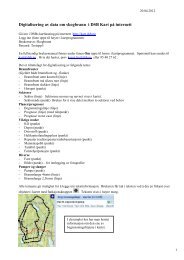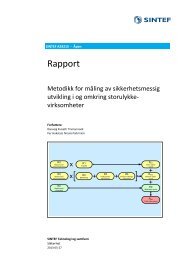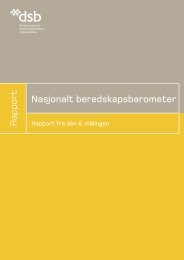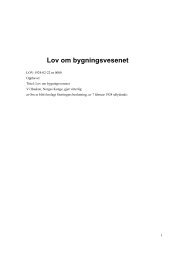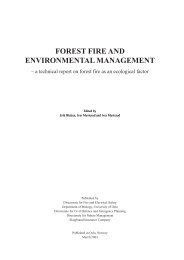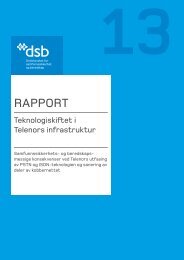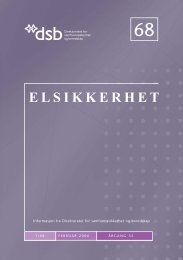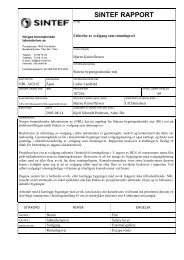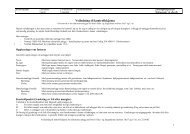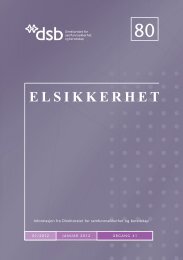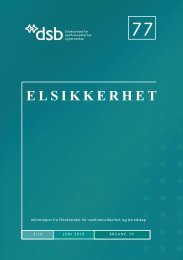REPORT
REPORT
REPORT
You also want an ePaper? Increase the reach of your titles
YUMPU automatically turns print PDFs into web optimized ePapers that Google loves.
The proposal relating to registration in the Product<br />
Register means that consideration must be given to whether<br />
any changes are necessary in the provision concerning<br />
the declaration requirement for dangerous chemicals,<br />
or whether the requirement for registration should be<br />
included in the Regulation where the other requirements for<br />
handling substances and mixtures containing ≥ 16 % N in<br />
relation AN are regulated.<br />
The Working Group also recommends that minor changes<br />
be made in Regulation No. 1063 of 4 July 2003 relating to<br />
trading of fertilisers and liming materials, etc. on the basis<br />
of the requirement of the REACH Regulation, which bans<br />
placing on the market substances or mixtures containing<br />
more than 28 % N in relation to AN, for use as a solid<br />
fertiliser, straight or compound, if the fertiliser does not<br />
pass the detonation test as described in Regulation (EC) No<br />
2003/2003.<br />
Changes must be made in the Explosives Regulation as<br />
there is a need to impose stricter requirements on the<br />
explosives industry’s handling of AN-based explosives.<br />
In order to enable Customs to report suspicious<br />
transactions to the police, the Customs Act requires that<br />
a violation of the enabling act, in this case the Fire and<br />
Explosion Protection Act, entail a prison sentence of at<br />
least 6 months. The sentencing framework in the Fire and<br />
Explosion Prevention Act is 3 months. The Working Group<br />
recommends amending the sentencing framework in the<br />
Fire and Explosion Protection Act.<br />
The Working Group can at this time also signal that in<br />
connection with the assessment of Regulation COM(2010)<br />
437, to be submitted on 1 October 2012, it will propose<br />
raising the sentencing framework of the Fire and Explosion<br />
Protection Act, since the EC Regulation requires states to<br />
have sanction provisions that are effective, proportionate<br />
and dissuasive.<br />
Nor does the Working Group find that the sentencing<br />
framework in the Fire and Explosion Prevention Act,<br />
to ensure safety when handling dangerous chemicals, is<br />
in proportion to other health and safety legislation. For<br />
worker protection and protection of the environment the<br />
maximum penalties are 2 years and 5 years, respectively.<br />
PST also made it clear in its consultative comments that the<br />
sentencing framework of the Fire and Explosion Protection<br />
Act must be amended.<br />
In connection with the establishment of a system for<br />
reporting suspicious transactions, it must be considered<br />
whether the Fire and Explosion Protection Act establishes<br />
adequate authority to require such reporting by the party<br />
in the sales stage of the trade chain. This will be studied in<br />
more detail in the recommendation to be submitted by 1<br />
October 2012<br />
46



